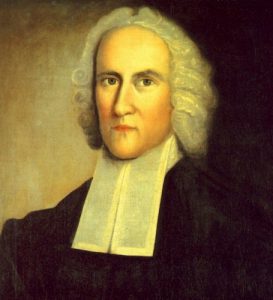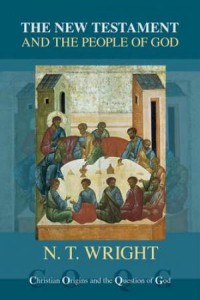Q&A: Are prophets today like those in the OT? How do we weigh prophecy?
Alan asks:
Just read your blog. It sounded very true to life in the church. I have a couple of questions.
Is a prophet under the New Covenant different to one under the Old Covenants? The Old Covenant prophets had the potential to write Scripture. The word of the Lord came to them. In the New Covenant the church is required to weigh prophecy and is not allowed to become Scripture. How do we recognise the genuine prophecy from the mistaken or deliberately misleading. For example, it is easy to find prophecies on the internet about the rightness of Brexit. Given the divided opinion of Christians on this issue, how would the church “weigh” such prophecy?
[This is a Q&A question that has been submitted through this blog or asked of me elsewhere and posted with permission. You can submit a question (anonymously if you like) here: http://briggs.id.au/jour/qanda/]
 Hi Alan, thanks for the question. What I offer here isn’t particularly systematic, but it’s how I’ve wrestled with it.
Hi Alan, thanks for the question. What I offer here isn’t particularly systematic, but it’s how I’ve wrestled with it.
The tricky thing is in the definition of “prophet.” The term can get used very broadly and also very narrowly, and while neither use is improper, we need to understand what is meant. I’m going to work from broad to narrow:
BROADLY SPEAKING a “prophet”…
- speaks truth. This is often in adverse circumstances; a prophet often speaks truth to power. The “speech” may not actually be words, e.g. prophetic “speech acts” are recognised in the Bible, but it does involve communication.
- guards values. There is an idealism in the prophetic, and lip-service doesn’t count. Prophets tend to understand and call-out motivations as well as actions.
- expects movement or change. Whatever a prophet says has a landing point, a point of application, a place to repent, or from which to be spurred on.
We can refer to “prophetic people” or even “modern day prophets” in this broad sense. Think of the agitators and dissenters in society, the “activists.” Their activism may be misplaced, or not, but they are acting “prophetically”; they are guarding values, speaking truth, expecting change. It can look like environmentalism, or speaking out on the hypersexualisation of society, or civil disobedience against compulsory school curriculum, or any number of things… you know what I mean.
Interestingly, perhaps, recent thinking about the “fivefold” ministry of Ephesians 4 considers the fivefold to be a recapitulation of human gifting more generally. At this broad level we are recognising the prophetic in humanity more generally. This is certainly Hirsch’s position in his exhaustive, although somewhat flawed, 5Q.
Let’s keep NARROWING IT DOWN, though.
The Bible recognises, in both the Old Testament and the New Testament, charismatically gifted prophets.
- They speak truth, as some sense of divine truth. They bring a “word from God” in some sense.
- They guard values, as some sense of God’s values. They often articulate the gap between our wayward hearts and idolatrous attitudes, and God’s call, purpose, and instruction.
- They expect movement or change. Sometimes encouraging, sometimes warning, always showing the way for people to draw closer to God. Often kind and encouraging, occasionally a tough-love “Stop! Turn around!”
This is where I would locate the exercise of prophetic gifts in today’s world. It is also where I would locate most of the New Testament prophets.
I don’t like demarcating things here at the “Old Covenant / New Covenant” line, though. There are many examples in the Old Testament in which the term “prophets” means what I think it means here. e.g. 1 Samuel 10:10-11 refers to Saul’s Spirit-filled prophesying; in and around Elijah and Elisha there are “groups of prophets” who are clearly prophets of a less authoritative sort (1 Samuel 10:5-6); Ezra 5:2 talks about attempts at rebuilding the temple being supported by “the prophets of God.”
In the New Testament, we can see people like Paul encouraging God’s people to exercise the gift of prophecy, because “the one who prophesies speaks to people for their strengthening, encouraging and comfort.” (1 Corinthians 14:3). Indeed, the meaning of Pentecost in Acts 2 is explained using Zechariah’s words that “in the last days… your sons and your daughters will prophesy” (Acts 2:17-18). Prophecy is not only listed in the fivefold giftings of Ephesians 4, but also within Paul’s gift-lists of 1 Corinthians 12 and Romans 12; “If your gift is prophesying, then prophesy in accordance with your faith” (Romans 12:6).
The example I like the most is found in Acts in the person of Agabus. We encounter him twice. The first is in Acts 11:28 where he prophesies (accurately) that a famine would spread over the whole Roman world. This prophecy prompts the Christians in Antioch to “provide help for the brothers and sisters in Judea.” Our second encounter with Agabus is in Acts 21:10 where he binds his hands with Paul’s belt, as a speech-act, and declares “The Holy Spirit says, ‘In this way the Jewish leaders in Jerusalem will bind the owner of this belt and will hand him over to the Gentiles.’” It is an accurate warning, it steels Paul’s resolve, and he sets his face for Jerusalem.
It is this form of prophecy that I recognise today. Some would assert that prophecy of this sort is now only expressed as preaching and exposition of Scripture. I don’t disagree that preaching is often prophetic, but I don’t apply the same restriction. Certainly Agabus was doing something different than delivering a sermon.
What I do see are members of God’s people who are moved in a prophetic way to speak truth, guard values, and provoke movement. Oftentimes (but not always) their ministry is exercised through insights, understandings, and knowledge that are also ministries of the Holy Spirit. Sometimes it is a prophetic word for the whole church or for a congregation. A lot of the time it is for a person or family, and the spiritual insights express a profound and personal care in God’s heart for the people who are being addressed.
The thing is, of course, that like every exercise of every gift in the church, it is done by fallible people. I have come across prophetic people (in the broadest sense) whose passion has turned into anger, bitterness, or even self-protective apathy. I have come across prophetic people in this narrower sense, who have acted impulsively, immaturely, and without due care. But I have also come across flawed evangelists, preachers, and pastoral carers!
Sometimes prophets get it wrong. And this informs the second part of your question: How do we weigh prophecy?
Firstly, we must recognise the final step in my movement from broad to narrow. There is one more sense in which we use the word “prophecy” and that is with regard to AUTHORITATIVE PROPHECY. This is, as you allude to in your question, related to the authority of Scripture.
In the Old Testament God ordains certainty people to act as Prophet (with a capital P) to his people. Like every prophet, they speak truth, guard values, and expect movement. In the sense we mean it here, however, these things come with the weight of divine imprimatur. The truth that these prophets spoke was of such weight, that they came to be recognised as authoritative instruction to God’s people, and applicable outside of their original context. Their utterances were proven by accuracy, adversity, and consistency; they were true, they were often true despite the resistance of the people who were meant to hear them, and they were consistently true. Take a look at Elijah and Elisha (in 1 and 2 Kings) and the written-down prophecies of Isaiah, Jeremiah, Ezekiel and the rest. You will find a consistent exhortation based on the promises of God and the identity of Israel as God’s covenant people.
Any other form of prophecy that does not heed this authority, therefore, is suspect. Ultimately, such “prophecies” are a rejection of God’s promises and the call of the covenant, and end up being a rejection of God himself. I don’t mean the sort of times when a “prophetic word” is given and it’s a little bit haphazard and not quite holding the sword of God’s word by the correct end. I do mean the sort of times when we hear “prophetic” words that seek to place us over and above the Scriptures, rather than under them to be shaped by them. This is not fanciful. I have heard people say “the church wrote the Bible, the church can rewrite it.” More gently, but perhaps more insidiously, I have heard people exhort that to step away from the Bible is to embrace a positive trust in the immediate inspiration of the Holy Spirit. Such an exhortation is not only self-defeating and self-serving, (it asserts that we cannot trust the Holy Spirit to talk to anyone else, including those who came before us in the biblical era), but cannot avoid undermining the (historic) promises of God, and our identity in Jesus as God’s covenant people. Such things are, by definition, false prophecy.
Beyond assessing prophecy by the authority of Scripture, however, it comes down to common sense. Each of us ministers according to the diverse gifts of the Spirit. Each of us started off immature and green, and (hopefully) we have grown in maturity, capacity, and ability. Young prophets need to be guided, just as new pastoral carers, and apprentice preachers. That guidance is not only about things like technique, but about deeper things of identity: a pastoral carer needs to identify when they are risking codependence, a prophet often needs to discern between godly zeal and the churn of their own brokenness. We give more weight to a seasoned, mature prophet, and generous attention and care to those who are first stepping out in faith to offer a word. We embrace all with a caring, loving, edifying community which desires everyone to grow in gifting.
For my part, I have appreciated when people have called me out on my own brokenness – it was motivated (usually) by a desire to see me heal and grow. In turn, I always try to keep an open door with prophetic people. Sometimes, having received “a word”, I might even say “I’m not sure you’re right, can you go back to God and seek more insight.” Or I might say, “I think you’re holding some truth there, I wonder if you need to hold it some more until God releases you to speak it, and shows you what to do.” Or I might say, “I think you’re catching a glimpse of something, but you need to go through some of your own fire before you can fully grasp it, or have the authority to speak it.” Hopefully, at the right time, these are constructive things!
Prophecy best works when the prophet is in “in the family.” There they have the freedom to speak prophetically, and the context in which it can be weighed up, clarified, and responded to. I have seen big meetings set in one direction, suddenly shift as a gentle but powerful word was shared.
Again, it’s common sense: The mature prophets I know have been through the fire, they have had their edges knocked off, and you can see the fruit of the Spirit in them as well as the prophetic gift. Younger prophets tend to catch the big picture (“God is calling us to love!”) and the more mature prophets begin to get a track record of well-hearted Jesus-honouring specific accurate words.
And this is how I weigh controversial prophecies about things like Brexit and Trump. Is it lined up with Scripture (e.g. are they blessing what cannot be blessed, trying to trump the Bible with their own agenda)? Are they speaking gently, from maturity, or grandstanding out of brokenness? Is the word hope-filled or fear-mongering, even if it is a “hard word”? Is it a word from them alone, or do I see the “family” moved? Is there accountability and relationship and a willingness to “let it go” and weigh it again? These, I think, are questions of common sense more than anything else.
In the end, which was the point of the original blog post, we need our prophets. We need them in our world and society. We need them in the church. We need them in our lives. We need God’s word.











